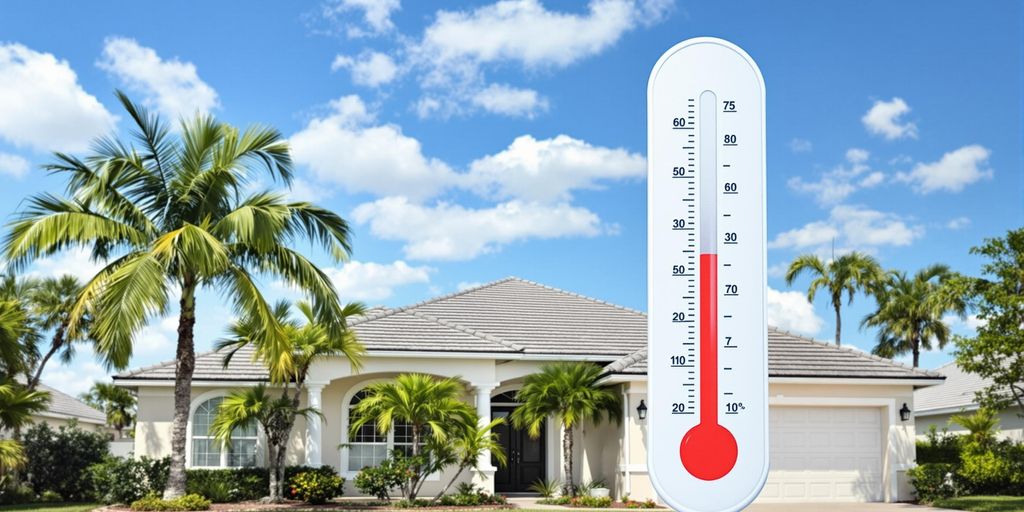Florida’s housing market is experiencing a significant slowdown, marked by declining prices, a surge in available listings, and growing concerns about a potential market crash. This cooling trend follows a period of unprecedented growth fueled by pandemic-era demand and low-interest rates. Affordability remains a major hurdle for potential buyers, exacerbated by rising mortgage and insurance costs.
Key Takeaways
- Price Declines: Median home prices across Florida have seen year-over-year drops, with some areas experiencing more significant decreases.
- Increased Inventory: The number of active home listings has surged, indicating a shift from a seller’s market to a more balanced or buyer-friendly environment.
- Slowing Sales: The pace of both condo and single-family home sales has slowed considerably compared to previous years.
- Affordability Crisis: High mortgage rates and insurance costs are making it difficult for many Floridians to afford homes.
- Market Correction vs. Crash: While some experts believe the market is undergoing a necessary correction, others express concern about the potential for a more severe downturn.
Regional Market Shifts
South Florida, including areas like Miami-Dade, Broward, and Palm Beach counties, has seen a marked decline in sales volume. Condo sales, in particular, have been hit hard, partly due to new regulations and reserve requirements following the Surfside collapse, making older buildings less attractive. While luxury markets show some resilience, the broader market faces challenges.
In Southwest Florida, including cities like Cape Coral and Fort Myers, the trend is similar. Cape Coral, specifically, has been identified as a market with a high risk of price decline, experiencing some of the steepest year-over-year drops in home prices. Properties are staying on the market longer, and bidding wars have become a rarity.
Factors Driving the Downturn
Several factors are contributing to the current state of the Florida housing market. High mortgage interest rates, which have risen significantly from pandemic-era lows, are a primary deterrent for buyers. Additionally, soaring insurance costs, a persistent issue in Florida, further impact affordability. The aftermath of the Surfside condo collapse has also led to stricter building codes and reserve requirements for condo associations, increasing costs for owners and potentially affecting property values in older buildings.
Future Outlook
While the market is undoubtedly cooling, the extent of a potential downturn remains a subject of debate. Some analysts suggest that the current situation is a natural market correction after an overheated period, leading to more sustainable price levels. Others warn that persistent affordability issues and economic uncertainties could lead to a more significant price decline. Buyers who can navigate the current conditions may find opportunities, but sellers need to adjust their expectations to align with the evolving market realities.
Sources
- A look into Florida real estate market, home sales slowdown, WUSF.
- The Hidden Opportunity Amid Market Crash Concerns, Norada Real Estate Investments.
- South Florida’s residential market is in a months-long slump, New York Post.
- Florida housing market cools as listings surge and prices drop, Gulf Coast News and Weather – Southwest Florida News.
- Will Cape Coral Be the Next Florida Housing Market to Crash?, Norada Real Estate Investments.


